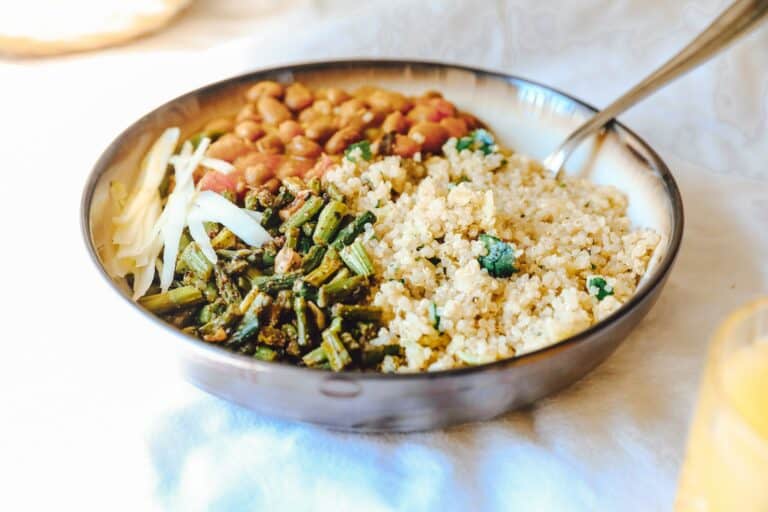This article will explore the nutritional benefits of quinoa in detail and how it can be incorporated into a healthy diet. Quinoa, a nutrient-dense super grain, has gained much popularity in recent years due to its numerous health benefits.
Nutritional Benefits of Quinoa
As a naturally gluten-free grain, quinoa provides essential amino acids and serves as a complete protein, making it an excellent choice for those following a gluten-free diet or seeking a plant-based protein source.

Quinoa, scientifically known as Chenopodium quinoa, is native to South America, where it has been cultivated for thousands of years. It is a member of the Amaranthaceae family and is often referred to as a pseudocereal because it is not a true cereal grain. Quinoa seeds are the edible part of the plant and come in different colors, such as white, red, black, and yellow.
One of the main nutritional benefits of quinoa is its high protein content. Unlike most other cereal grains, quinoa contains all nine essential amino acids, making it a complete protein source. Essential amino acids are those that our bodies cannot produce on their own and must be obtained through the diet. This makes quinoa an excellent choice for vegetarians, vegans, and individuals looking to increase their protein intake.
Quinoa is also rich in dietary fiber, which is important for digestive health. The fiber content in quinoa helps maintain bowel regularity, prevents constipation, and promotes a healthy gut. Incorporating quinoa into your diet can also aid in weight loss and maintaining a healthy weight. The high fiber content in quinoa can help you feel fuller for longer, reducing the urge to overeat.

In addition to being gluten-free, quinoa is a whole grain and a great alternative to refined grains. Refined grains, such as white rice and white bread, are stripped of their nutrients during processing. On the other hand, whole grains like quinoa retain their bran and germ, which provides essential nutrients and antioxidants. By replacing refined grains with quinoa, you can ensure that your body receives important nutrients like B vitamins, iron, magnesium, and zinc.
Quinoa is also beneficial for heart health. The high fiber content in quinoa can help lower cholesterol levels and reduce the risk of heart disease. Additionally, quinoa contains healthy fats, including omega-3 fatty acids, which have been shown to reduce inflammation and improve heart health. Consuming quinoa as a part of a balanced diet can contribute to a healthier heart.
Quinoa’s popularity has increased in recent years due to its versatility. It can be used in a variety of dishes, from cold salads to savory quinoa pilaf. Cooked quinoa can be used as a substitute for rice or pasta, and quinoa flour can be used in baking for those following a gluten-free diet. Quinoa flakes are also available and can be used as a breakfast cereal or in baking recipes.
To incorporate quinoa into your diet, simply cook quinoa according to package instructions. One cup of cooked quinoa provides approximately 222 calories, 39 grams of carbohydrates, 8 grams of protein, and 3.5 grams of fat. It is a great addition to salads, stir-fries, and soups. Try adding cooked quinoa to your favorite vegetable broth with some lemon juice and feta cheese for a flavorful and nutritious meal.
Quinoa is not only beneficial for your physical health but also your skin health. The high vitamin E content in quinoa helps promote healthy skin by protecting it from damage caused by free radicals. Including quinoa in your diet can contribute to a radiant complexion and overall skin health.
In conclusion, the health benefits of quinoa are vast. It is a naturally gluten-free, complete protein source that is rich in essential amino acids, dietary fiber, and important nutrients. By incorporating quinoa into your diet, you can support digestive health, maintain a healthy weight, improve heart health, promote skin health, and reduce the risk of chronic diseases. Whether you choose white, red, black, or yellow quinoa, this ancient grain is a valuable addition to a balanced and nutritious diet.

